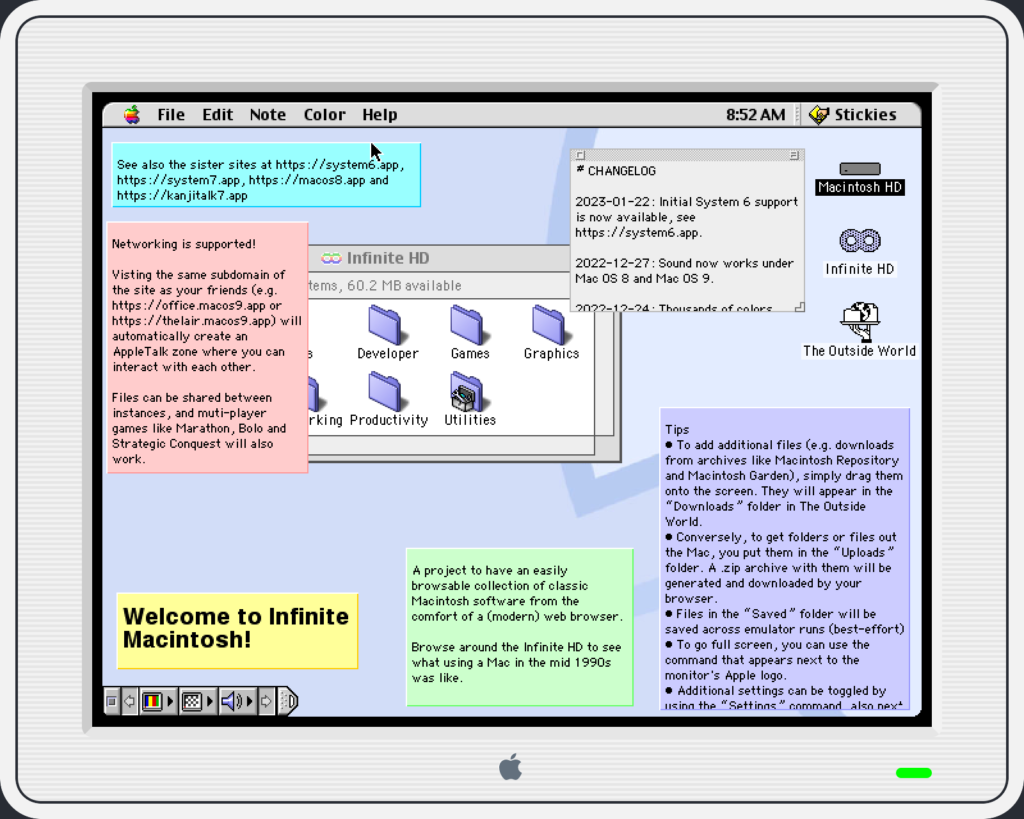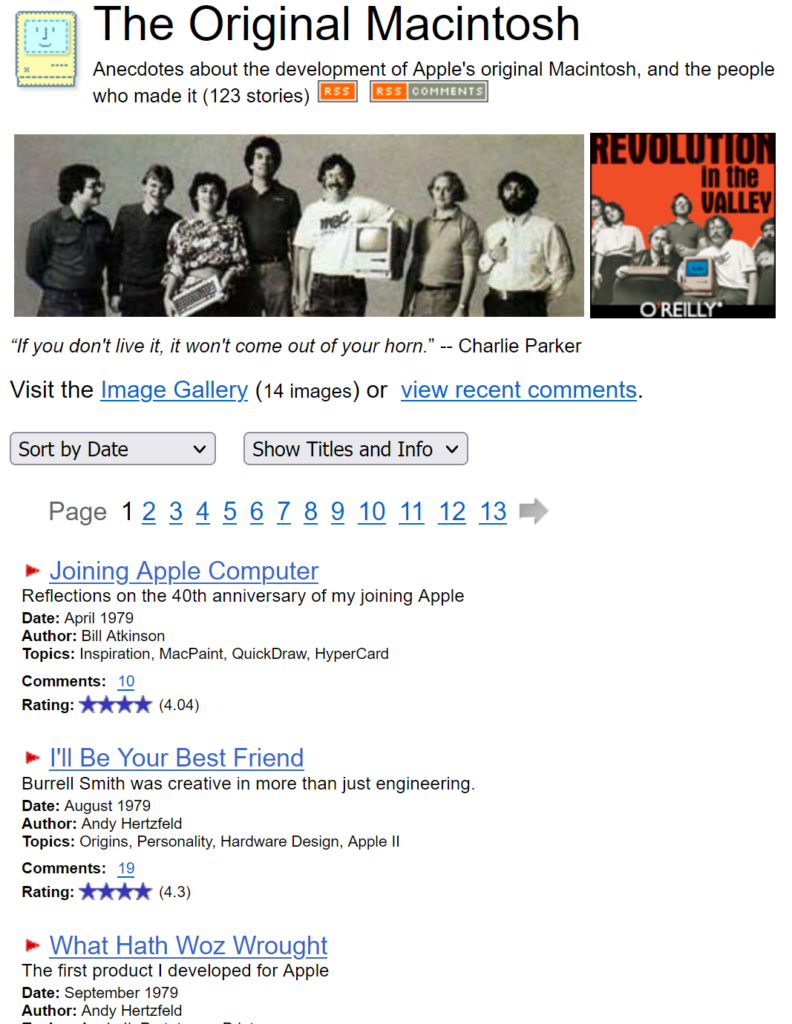A while back we linked to Infinite Mac’s surprisingly deep emulation of Mac OS Classic System 7 and Mac OS 8 (they’re both of the same line of operation systems despite the change in name) in web browsers. Since then they’ve also added System 6 and Mac OS 9 to their offerings, in addition to a Japanese version of System 7.

Features a good variety of software including games and productivity, a full-screen mode, built-in networking with friends on the internet by specifying the same subdomain allowing such tricks as online sessions of Marathon, and a fairly easy way of adding your own software.
If you use this and want to keep files between sessions, make sure that you move or copy them to the Saved folder, under The Outside World. Read the purple Sticky for more information on getting files into and out of the emulation.
I find that Classic Mac OS has a power to inspire nostalgia that OS X doesn’t. It might have to do with how so many of its conventions dated back to the original Macintosh release from 1984. Multitasking came to Macintosh after the fact, so when it arrived Mac OS used a cooperative multitasking paradigm, that meant one misbehaving program could bring down the whole machine. Yet the system felt smaller, like there wasn’t as much unfathomable technology between the computer and the user. And I still dig that crisp pixel art used for the icons. It is possible to have too much anti-aliasing.
Infinite Mac’s emulatons of System 6, System 7, Mac OS 8, Mac OS 9 and Japanese System 7.

